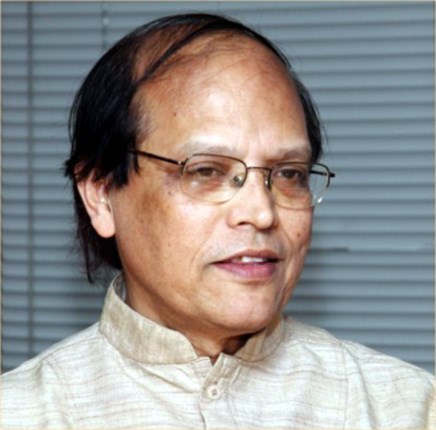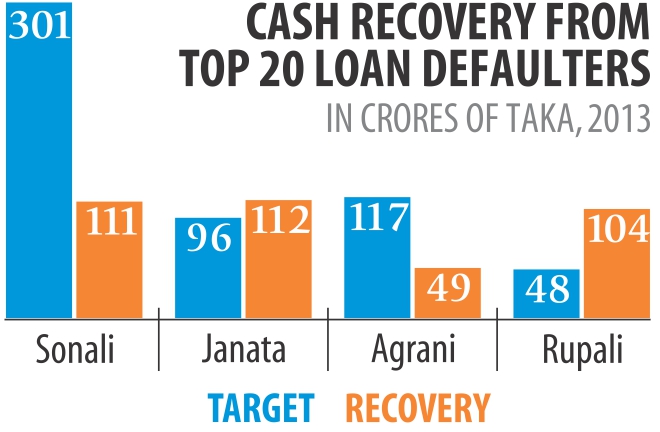BB governor returns today
 DHAKA : Bangladesh Bank Governor Dr Atiur Rahman will return home today after completing his three Nations The central bank governor left Dhaka for Japan on March 18 at the invitation of the government of Japan reached Tokyo on March 19.
DHAKA : Bangladesh Bank Governor Dr Atiur Rahman will return home today after completing his three Nations The central bank governor left Dhaka for Japan on March 18 at the invitation of the government of Japan reached Tokyo on March 19.
He held meetings with high officials of Bank of Japan and Bank of Tokyo, president of JICA and President of JETRO, officials of Japan-Bangladesh Council for Commercial and Economic Cooperation and Japan Chambers of Commerce and He also had a meeting with President of Japan Mint Yoshiake Atiur visited some business projects and held meetings with From Japan,
Dr Rahman went to Brunei Darussalam to attend the 24th meeting of the IFSB Council, hosted by Autoriti Monetari Brunei Darussalam (It was chaired by the Managing Director, AMBD, Dato Mohd Rosli Sabtu and attended by 10 central governors and heads of regulatory and supervisory authorities, as well as 12 senior representatives among the Council and Full members of the IFSB,
representing 17 He also had a meeting with Bangladesh high commissioner to On his way back home, Dr Raman reached Bangkok today where he spoke on socially responsible for enhancing economic and financial stability at a big gathering of students, teachers and including the President Professor Worsak Nukulchai of Asian Institute of Technology (AIT).
News:Bangladesh Today/30-Mar-2014Weak state banks pose risks to economy: study
The banking sector is seriously vulnerable to economic shocks, mainly due to the poor performance of state-
owned banks, Business Monitor International (BMI), a London-based research firm, found in a recent study.
The state banks have racked up a large amount of non-performing loans on their books, creating a flaw in
the banking system, the study said.
“This makes the banking system extremely vulnerable to shocks and impedes the efficient allocation of
financial resources in the economy,” the BMI said in its Bangladesh Commercial Banking Report 2014.
“Weak balance sheet brings risks to privatisation of state-owned banks.”
As of September 2013, the gross non-performing loan ratio of state banks stood at an elevated 28.8 percent
, an increase from 2011's 11.3 percent and 2012's 23.9 percent, while the speicalised banks' gross NPL ratio remained high at 29.4 percent, it said.
The amount of default loans at the state banks was Tk 16,606 crore or 19.76 percent of their outstanding loans on December 31 last year, according to Bangladesh Bank.
Despite various reforms, the banking sector's health remains poor, and “a greater concerted effort from the regulators, specifically targeted at state-owned banks, is clearly warranted,” the study said.
As of September 2013, capital shortfall at state banks stood at Tk 8,860 crore, and the government has
already disbursed Tk 4,100 crore to strengthen their capital base, the BMI said.
The study also said last year's political unrest marred Bangladesh's image abroad.
A total of 206 fatalities "due to Islamist terrorism" have been recorded up to August last year, which is a
staggering three times more than the total over the past eight years, according to the study.
The report said the total assets of banks are expected to rise by more than 2.5 times to Tk 1,864,280 crore
in 2018, from Tk 708,410 crore in 2012.
Even in the gloomy outlook, some points to cheer remain, it said.
The Financial Action Task Force, an inter-governmental body for monitoring countries that are strategically
deficient in their compliance with its anti-money laundering and counter-terrorism financing rules, has recently removed Bangladesh from its watch list.
“This reflects the significant progress that has been made by Bangladesh to combat money laundering and terrorism financing in its banking system,” it said.
While the central bank has relaxed its loan rescheduling policy to help affected businesses, this temporary
measure is unlikely to provide much reprieve to the continued deterioration in asset quality, the BMI said.
Bangladesh has 56 banks including nine new ones. Four state-owned banks -- Sonali, Janata, Agrani and
Rupali -- hold around a quarter of total industry assets and roughly a fifth of total outstanding loans.
News:The Daily Star/30/Mar/2013Loan write-offs shoot up

Banks' written-off loans last year more than doubled year-on-year, as banks looked to bring down their default loan portfolio and clean up their balance sheet.
In 2013, banks wrote off loan amounting Tk 6,893 crore, in contrast to Tk 2,992 crore in 2012, according to central bank statistics.
The state-owned commercial banks alone accounted for Tk 4,573 crore of the write-offs, up 288 percent year-on-year. Sonali wrote off Tk 2,177 crore, Agrani Tk 1,313 crore and Janata Tk 1,083 crore. Rupali Bank did not write-off any
loan in 2013.
As for the Tk 2,320 crore written off by private banks, four banks alone made up half of the amount.
Meanwhile, a high official of Janata Bank said the loan write-offs in 2013, which was an increase of almost 275 percent over the previous year's, does not reflect the true picture.
Loans are usually written-off at the end of the year, and the state-owned bank did not have a functioning board in the last three months of 2012. As a result, mass write-offs had to be done in 2013 to make up for the previous year's.
Efforts to recover the amount though are ongoing, he said. Last year, the bank recovered Tk 130 crore, which went directly to their income.
A high official of Sonali Bank echoed the same, adding that the bank recovered Tk 436 crore from the written-off loans in the last three years.
The practice of writing off loans started in 2003, with Tk 30,728 crore loans written off until December 31 last year. Banks make provisioning against the amount, and when the loans are recovered they boost the income and profitability.
Atiur for socially responsible financing
He emphasized that higher access to finance enhances social and economic stability.
Bangladesh Bank Governor Atiur Rahman has urged financial regulators to focus on financial inclusion including micro-insurance, micro-finance and socially responsible financing (SRF) for ensuring economic stability.
Addressing the 24th meeting of the Council and the 12th General Assembly of Islamic Financial Services Board (IFSB) in Brunei Darussalam yesterday, he made the call saying that financial inclusion and SRF would not only for improving the condition of the disadvantaged, but also for wider objective of achieving financial stability.
He emphasized that higher access to finance enhances social and economic stability, reports BSS.
Islamic Development Bank (IDB) president, governor of Sudan and chairman of Financial Supervision Authority of Indonesia supported Dr. Rahman’s views on micro-finance including Islamic micro-finance, according to a BB press release issued here.
Dr. Rahman also suggested IFSB to do more research and advocacy on capacity building of different central banks on their regulatory and supervisory role related to Islamic financing.
In addition to attending the Council meeting, the BB governor participated in the annual general meeting and a public lecture on financial stability.
News:Daily Sun/29-Mar-2014BKB to organize Halkhata 1421
Bangladesh Krishi Bank (BKB) is going to observe ‘Shubho Halkhata-1421’ with a view to expediting all types of banking activities including disbursement and recovery of loans and deposit mobilisation.
The bank will arrange ‘Shuvo Halkhata Programme-1421’ on April 13 next, marking the Bengali New Year.
All the branches of the bank will be decorated with coloured paper and leaflets will be distributed on this occasion.
In this context, the bank will chalk out a special business development programme from 6 to 24 April, 2014, being conducted at all branches of the bank across the country.
Meanwhile, high officials of the bank have been deputed to the field offices in order to conduct the programme successfully, the release said.
On the occasion, the bank will offer various activities to its customers for developing cordial relation between bank and customers.



